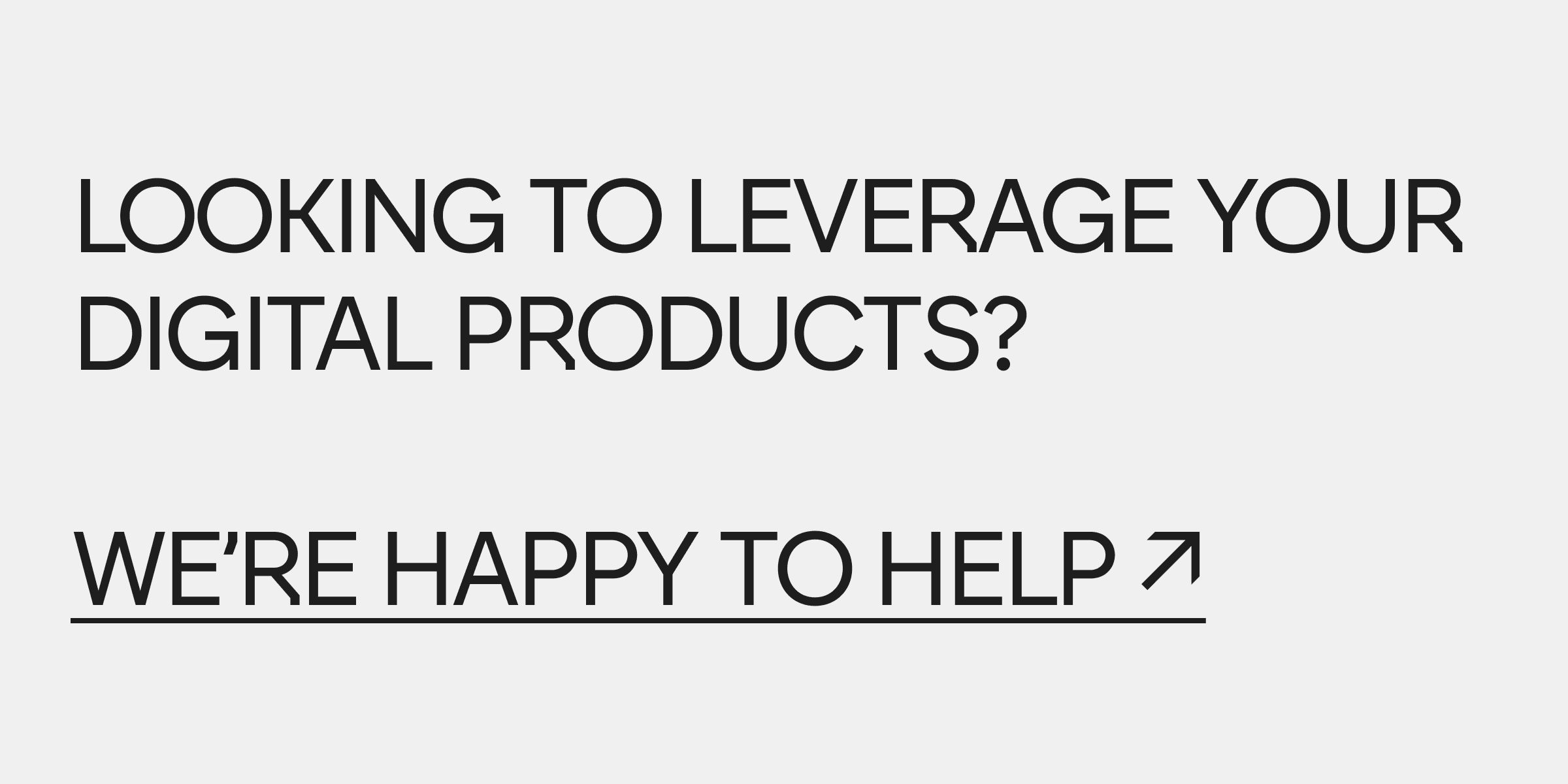To stay ahead of the competition, you need to stay on top of the latest trends. Unfortunately, it can be rather difficult. Technologies change at a rapid speed, which means that picking one that will define an entire system is a challenge in itself. Then, if you do make a choice, actually implementing that technology might seem rather daunting. With that in mind, it's easy to see how companies can fall behind.
Luckily, headless software is here to save the day! It's both easy to understand and easy to implement, which is why more and more companies are using it in various projects. Read on if you'd like to learn more about how it works and what its benefits are!
What Does “Headless” Mean? Why Is It Called “Headless”?
Let's start by explaining how an application is built. Essentially, it consists of two layers, the back-end and the front-end.
The back-end is like the human body from the neck down. It supports many essential functionalities, or organs, that an application wouldn't be able to work without. The said functionalities often include data storage, order processing, and inventory management, among other things.
On the other hand, the front-end is like the head of a body. It's the presentation layer, a graphical user interface that you interact with to navigate an application. It works by making use of the aforementioned organs, or functionalities, hidden within the back-end.
In a traditional set-up, making changes to the front-end of an application often requires significant adjustments to its back-end. Such a tight coupling can slow down updates, making it harder for companies to respond to market changes or implement new features.
That's where "headless" technology comes into play. To put it simply, the term "headless" is a nod to the severing of the head from one's body. When it comes to software development, you sever the front-end of an application from its back-end. It's an approach with a wide range of benefits, including greater flexibility, scalability, and speed in deploying updates.
Read also: Everything to Know About Frontends for a Headless CMS
Headless Software Examples
Headless software encompasses a broad range of applications and services, each designed to streamline and enhance the development process. Below are some prime examples of headless software that's in use today.

Headless Applications
Think of a headless application as software that works without a traditional graphical interface. Instead of interacting with it through buttons and menus on a screen, it runs in the background or is controlled through other programs. It's like having a car without a dashboard. You can still drive it, but you use a different set of tools to control it.
Headless Content Management Systems
A content management system is a piece of software that you can use to manage website content. If it's a traditional CMS, it's probably going to include tools for designing a website. On the other hand, a headless CMS separates website content, including articles, pictures, and videos, from the presentation layer of a website. Its primary focus is on back-end functionalities and content management. For that reason, you can use it to tinker with website content without having to worry about what it will look like to the end-users.
Headless Commerce
Headless commerce is a way to build online shops that separates the part you see, like individual pages and buttons, from the part that does the work, like inventory management and order processing software, using a headless commerce platform. It lets developers change how the shop looks and works without messing with its deeper operations. It also makes it easier to sell products across different online platforms and devices, and allows for more creative and flexible designs.
Headless Browsers
A headless browser is like a regular browser, but it doesn't display any web pages visually. It's used for automating website interactions, testing websites, and scraping website content. It's just that everything is done in the background, without opening actual browser windows.
Headless Payment Providers
A headless payment system handles transactions without a traditional interface. As such, it can be integrated into other applications, allowing for payments to be processed behind the scenes. In addition, it gives you flexibility in designing a unique payment experience.
Headless Search Engines
A headless search engine operates without a graphical user interface. It's designed to be integrated into other applications, providing search capabilities to websites or software applications without the search engine's branding.
Headless Systems vs. Monolithic Systems
Systems with fully integrated front-end and back-end functionalities are also known as monolithic, coupled, or regular systems. While the headless approach to software development is considered to be the improved norm, monolithic systems are still widely popular.
Monolithic websites use all-in-one systems to store, manage, and present a website's content. To put it another way, both the front-end presentation layer of a website and the back-end layer that's making it work behind the scenes can be tinkered with at the same time.
It's a solution that's been around for a long time and many businesses are familiar with it. The way it integrates every aspect of a website might appeal to some as the better option when compared to headless architecture, and it's not hard to see why. You get to do everything in one place, whether it be optimizing a website's code or publishing a blog post.
However, monolithic systems are not always the best solution. Most importantly, such systems simply don't have enough flexibility to fit an individual business owner's needs. As a result, with the monolithic approach, you are likely to have to settle for a system equipped with expensive or confusing features that you will never use.
Top Benefits of Headless Software
The rising popularity of headless software systems can be attributed to several factors. Let's start with a headless system's greatest asset. Compared to other options, headless systems provide you with exceptional flexibility. You can modify such a system with ease, effectively tailoring it to the unique challenges you're facing. As a result, you get to enjoy increased productivity and superior ease of use. More on that below!

Increased Flexibility and Adaptability
Compared to other systems, a headless system is likely to offer superior flexibility. Whether you need to perform a more substantial overhaul or tweak a few aspects of how something works, a headless system makes it infinitely easier to take care of. You can swap things out and tinker with everything without disrupting the way the rest of an application or website works.
Freedom To Build Something That’s Tailor-Made
Monolithic systems are often limiting. Introducing certain features might take too much time and effort. At the same time, getting rid of others might provide to be a major headache. With a headless software system, you don't have to worry about such things. You get to enjoy virtually unlimited options for building a software solution that fulfills a list of very specific business needs.
Ability To Adapt to Changing Business Trends
Headless software is great when it comes to the ease and speed with which you can adapt to changing business trends. If a competitor's store has just launched an exciting and interesting feature, you can do the same thing with ease and efficiency. The same goes for integrating with new business solutions and platforms.
Increased Security, Compliance, and More
Did you know that headless software can help you take advantage of additional back-end functionalities related to security and compliance? Headless systems offer a wide range of options for implementing software solutions related to inventory management, data security, and fraud detection. So, if you'd like to effectively invest in the safety of potential and existing customers, setting up a headless software system is definitely one of the best ways to go about doing it!
Read also: How To Design an ADA-Compliant Website
Is a Headless System Right for You?
With so many benefits, it’s easy to understand why headless architecture is so appealing. It comes with flexbility, adaptability, and increased security, among other things. Nevertheless, before you decide to invest in a headless application, you should consider several important matters.
-
The development process usually takes longer. Headless developers often have to write custom code to make a headless solution work the way it should. So, on the one hand, headless software solutions are quite flexible. On the other hand, developing such a solution might take more time and expertise in comparison to a regular monolithic system.
-
A headless system can be harder to maintain post-development. Because of how intricate headless software solutions can be, updating individual components of such solutions often can't be done with a click of a button. Instead, you need an experienced developer to step in and handle it for you.
-
Headless software is often more expensive than monolithic software. Since the development process is long and a website maintenance can end up being quite complicated, it's only logical that the total price tag of the entire project is going to be quite high. However, with a headless system, you're paying for a flexible product that can quickly be adapted to changing customer demands and market trends. So, it saves you money in the long run.

Need a Headless Software System? Have a Team of Experts Take Care of It for You!
Are you thinking about investing in a headless software system? While it can be a daunting endavor, we would be more than happy to help you out. We have already worked on quite a few such systems. In fact, our own website was built using headless architecture. If you'd like to get in touch with us, feel free to fill out our contact form. We will get back to you as soon as we can!






